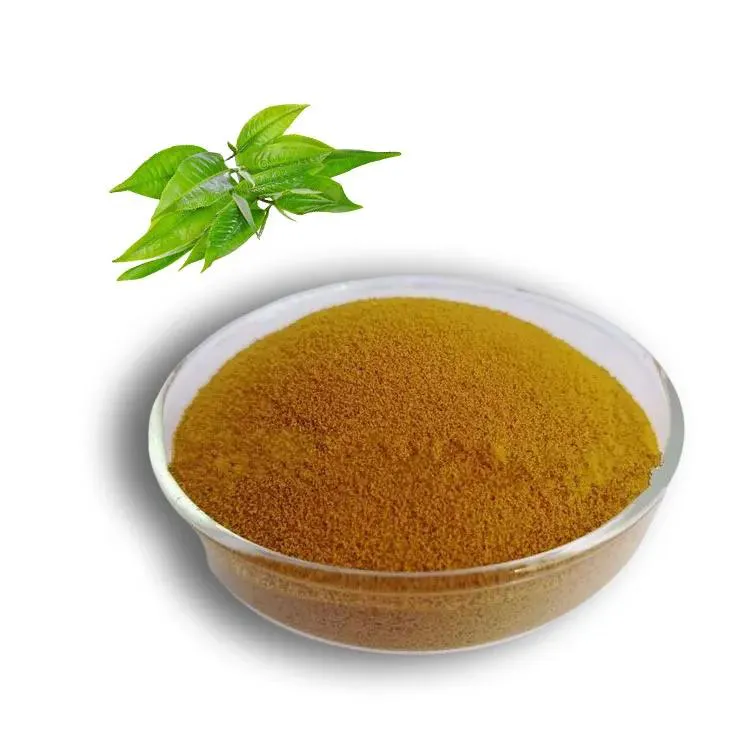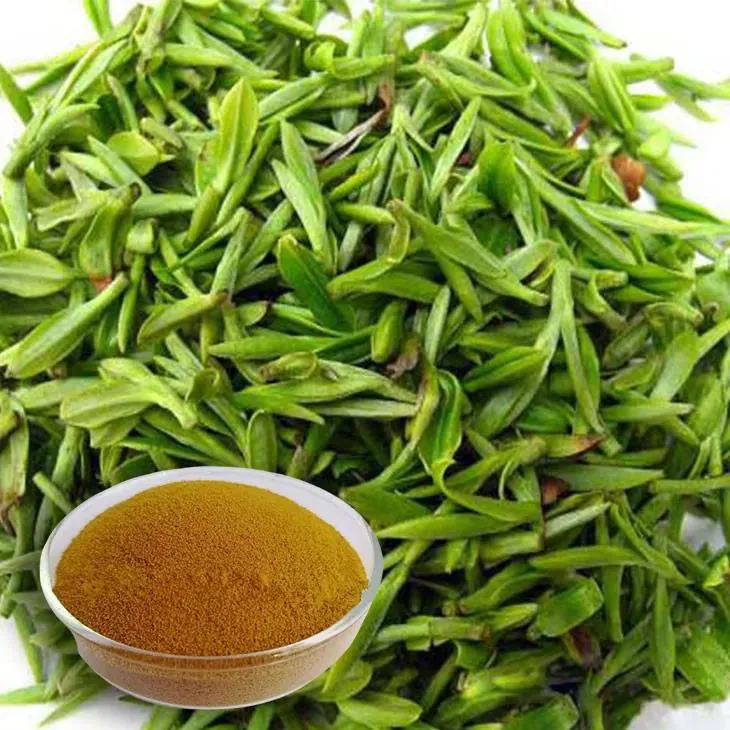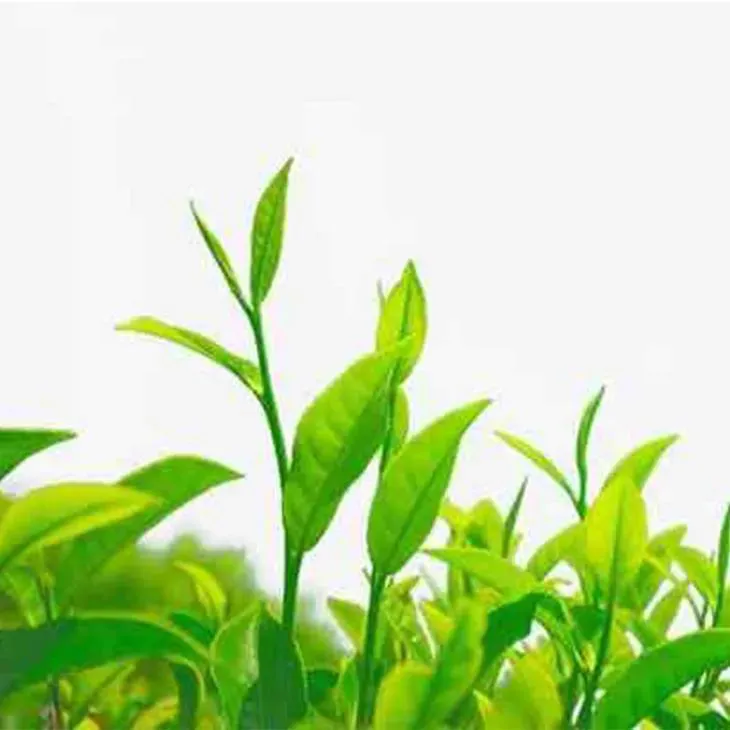- 0086-571-85302990
- sales@greenskybio.com
Combining Green Tea Extract and Caffeine: Benefits and Considerations
2025-08-31

Green Tea Extract and caffeine are often combined in supplements to enhance energy, focus, and fat metabolism. While together they may offer synergistic benefits, overuse can increase the risk of side effects.
1. Enhanced Focus and Mental Energy
Caffeine is known to boost wakefulness and mental clarity. Green tea contains L-theanine, which can calm the mind and reduce stress. Together, these compounds improve focus and mood without the jitters often associated with coffee.

2. Cellular Protection from Damage
Green tea catechins are robust antioxidants that protect cells from damage caused by pollutants, stress, and aging. When paired with caffeine, these antioxidants may more effectively uphold cellular health.

3. Metabolic Boost
Caffeine elevates the body's metabolic rate, while green tea catechins support metabolism. Their combination, especially in forms like matcha, may assist in weight loss when paired with a healthy lifestyle.

4. Reduced Cancer Risk
Studies suggest that green tea catechins may inhibit cancer cell growth in areas such as the breast, prostate, lungs, and stomach. Although caffeine doesn’t directly combat cancer, it may enhance the absorption and efficacy of catechins.
5. Improved Brain Health and Stress Reduction
Caffeine provides short-term cognitive and energetic benefits. Over time, catechins and L-theanine from green tea may protect the brain and reduce stress levels.
Understanding Green Tea Extract and Caffeine
Green Tea Extract is a concentrated form of the compounds in green tea leaves, offering more potency than a brewed cup. It contains catechins, particularly EGCG, which may protect cells, support metabolism, and reduce inflammation. Some extracts also include caffeine, a natural chemical that promotes wakefulness and alertness by blocking fatigue-related brain signals. It's commonly found in coffee, tea, energy drinks, and chocolate. In supplements, caffeine is used to boost energy and calorie burning.
Despite their complementary effects, excessive intake can lead to side effects, particularly in individuals sensitive to caffeine.
Possible Risks and Side Effects
Generally well-tolerated, side effects can occur, particularly with over 400 mg of caffeine or high doses of green tea extract. Overconsumption of caffeine can result in rapid heartbeat, elevated blood pressure, insomnia, anxiety, stomach issues, and headaches. Green tea extract side effects include nausea, increased blood pressure, abdominal discomfort, constipation, and in rare cases, liver toxicity.
Consult a healthcare provider before taking these supplements, especially if you are pregnant, breastfeeding, or have pre-existing health conditions such as heart disease, high blood pressure, anxiety disorders, or caffeine sensitivity.
Not Suitable for Everyone
The combination of green tea extract and caffeine may not be appropriate for everyone. It's crucial to discuss with a healthcare provider if you are pregnant, have heart conditions, take certain medications, or have heightened sensitivity to caffeine.
This information emphasizes the importance of informed use and professional guidance when considering supplements for improved metabolic and cognitive health.
- ▶ Hesperidin
- ▶ Citrus Bioflavonoids
- ▶ Plant Extract
- ▶ lycopene
- ▶ Diosmin
- ▶ Grape seed extract
- ▶ Sea buckthorn Juice Powder
- ▶ Fruit Juice Powder
- ▶ Hops Extract
- ▶ Artichoke Extract
- ▶ Mushroom extract
- ▶ Astaxanthin
- ▶ Green Tea Extract
- ▶ Curcumin
- ▶ Horse Chestnut Extract
- ▶ Other Product
- ▶ Boswellia Serrata Extract
- ▶ Resveratrol
- ▶ Marigold Extract
- ▶ Grape Leaf Extract
- ▶ New Product
- ▶ Aminolevulinic acid
- ▶ Cranberry Extract
- ▶ Red Yeast Rice
- ▶ Red Wine Extract
-
Baicalin
2025-08-31
-
Rose Hip Extract
2025-08-31
-
Centella Asiatica Extract
2025-08-31
-
Saw Palmetto Extract
2025-08-31
-
Mulberry leaf Extract
2025-08-31
-
Oat Straw Extract Powder
2025-08-31
-
Shikone Extract
2025-08-31
-
Acerola Extract
2025-08-31
-
Konjac Powder
2025-08-31
-
Yam Extract
2025-08-31





















